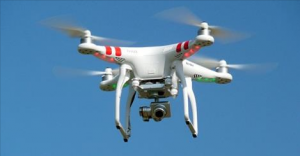 BALPA (British Airline Pilots’ Association) has given a cautious welcome to the House of Lords European Union Committee report on civilian use of drones in the EU. The report recommended ‘small steps’ towards putting the EU and UK rules and enforcement in place for the safe expansion of leisure and commercial drone use.
BALPA (British Airline Pilots’ Association) has given a cautious welcome to the House of Lords European Union Committee report on civilian use of drones in the EU. The report recommended ‘small steps’ towards putting the EU and UK rules and enforcement in place for the safe expansion of leisure and commercial drone use.
The Committee backed BALPA’s call for a full public consultation with residents and aircraft passengers, before large, commercial Remotely Piloted Aircraft Systems (RPAS) are permitted to fly over our towns, villages and cities in the future.
The report also called for the development of a system to track and trace all leisure and commercial drones, including identifying their owners, and proposed, in the meantime, an online database for commercial users to log their flight patterns to inform others using the airspace. BALPA is concerned that unless commercial drone users are required to enter their details the take-up and use of the database is unlikely to be sufficient to provide any real safety benefit. BALPA recommends that use of the database is mandatory and linked with the insurance and enforcement improvements recommended by the Committee.
BALPA General Secretary Jim McAuslan said, “These small steps will go some of the way towards the UK becoming a ‘safe drone zone’ so we can make the most of the major business and leisure opportunities offered by remotely piloted aircraft while protecting passengers, pilots and residents. Better awareness and enforcement of the current rules are welcome however the voluntary nature of the flight path database of commercial drones and largely unregulated approach to small leisure RPAS will unlikely be enough to avoid near misses with passenger aircraft and potential disasters.
“BALPA pilots support the call for a comprehensive system to track and trace all drones and the planned consultation with the British public before companies fly large, remotely-piloted aircraft over their homes and alongside their passenger planes.”
BALPA has also highlighted a number of safety incidents involving RPAS, which can be viewed, along with more information, at www.balpa.org
